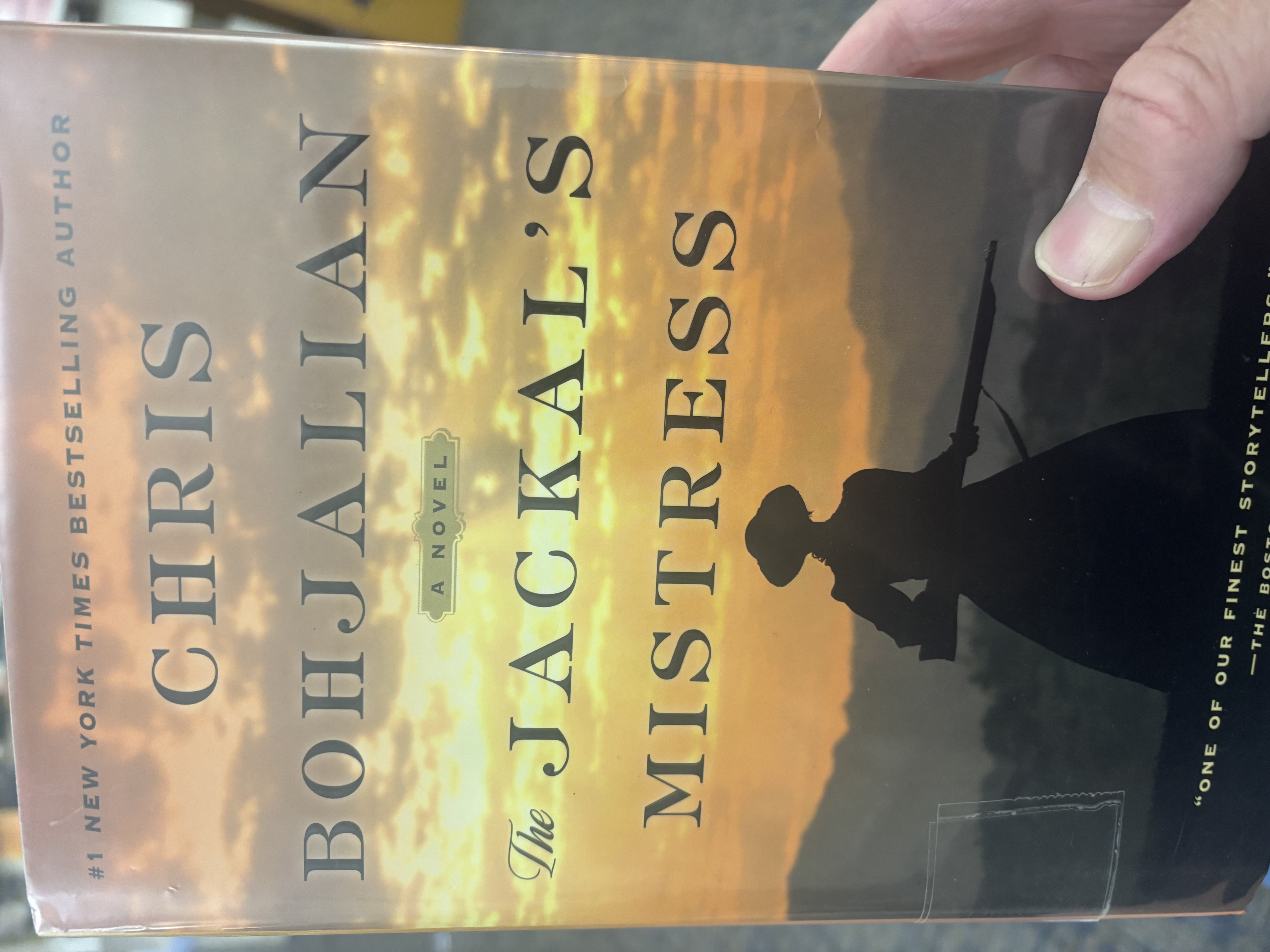The Jackal's Mistress

You had to see it to believe it. Roughly three in the morning, and I’m wide awake on the living couch, flat on my back, passionately steaming through the final pages of The Jackal’s Mistress, Chris Bohjalian’s latest novel.
Tears streaming down my face.
Yes, I was weeping. My goodness—obviously, getting more sentimental as I move on with life.
Though Jackal’s the sort of book that would have me wiping away tears as a young man.
Guess I've always been a hopeless romantic. No point in denying it.
Set in the Shenandoah Valley in Virginia, during the civil wars, Jackal tells the story of Libby Steadman, a confederate woman, who risks her life by taking in Captain Jonathan Weybridge, a union officer, who’d been seriously wounded in battle and left for dead by his fellow soldiers.
Why does Libby take him in?
Because her husband is a rebel soldier taken prisoner and held at some undisclosed prison camp in the north. And she’d like to believe a Yankee woman would do the same for her husband in a parallel situation.
The real Golden Rule of “do unto others as you would have them do unto you.” As opposed to the MAGA version which goes like this…
I got my gold–so go fuck yourself.
The book has many gripping scenes where Confederate soldiers or marauders come close to discovering Weybridge and his protecters—Libby, Sally and Joseph (two freed slaves) and Jubilee, Libby’s precious 12-year-old niece. Aka—the good guys in the book.
Will they be captured? Not telling you. Gonna have to read it yourself.
I will say Bohjalian is a fabulously story teller who subtly weaves in his political themes as opposed to hitting you over the head with them. As I just did with that Golden Rule sentence.
Sorry, everybody.
For all of his hatred for slavery, Bohjalian does not refrain from needling the northerners as in this exchange between Captain Weybridge and Jubilee.
“But Jackal? I got to ask you this. Joseph [a black man] can’t sleep at the inn, and he can’t eat at this restaurant. If you folks want to free the slaves why don't you just treat `em like white people?”
Excellent question, Jubilee!
to which Weybridge replies…
”We should.”
Pretty lame response, Captain.
But, really, what can he say when the truth hurts so much.
Lovely writing abounds, like this passage from a moment when Weybridge lies awake, battling his physical pain and mental torment.
“Was it a minister or a poet who had said that all of living was but saying goodbye? That we wept because of the utter transience of our lives? He felt that truth now in his bones, his soul, his ever-breaking heart.”
Well done, Chris B–from the old sentimentalist on his couch in Chicago.






